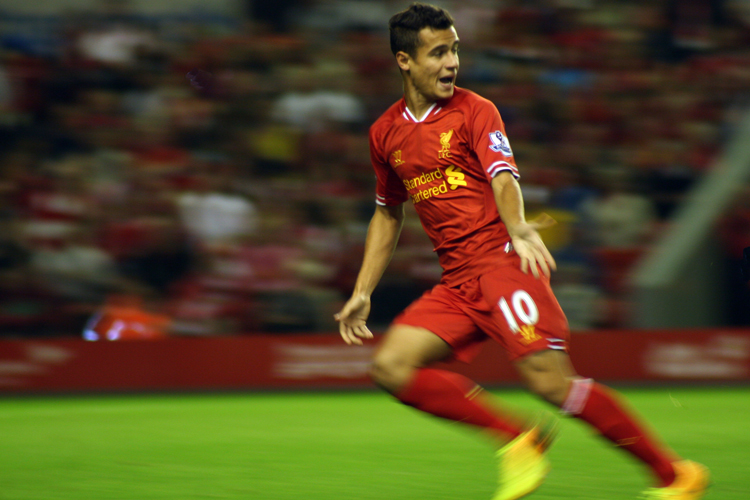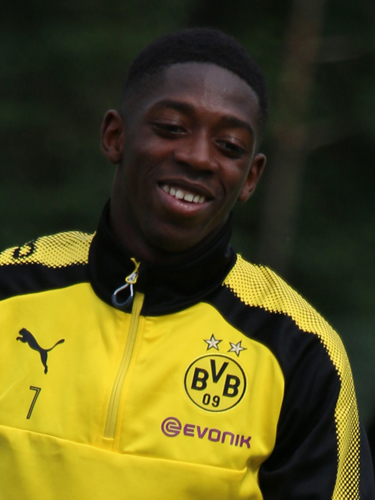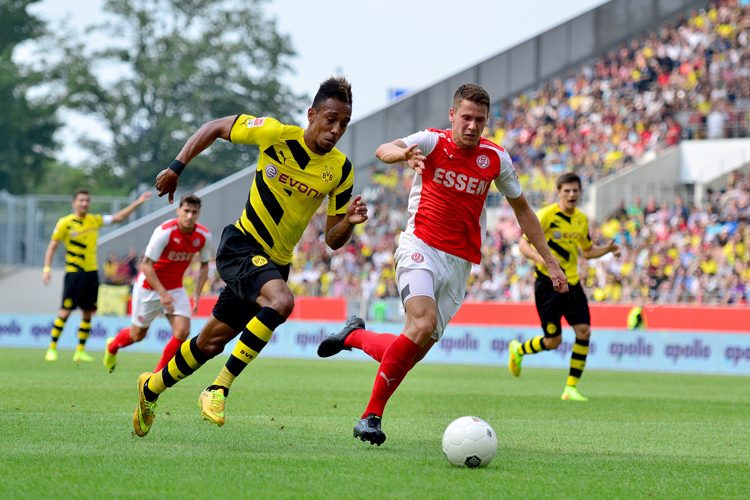On the pitch, players such as Phillipe Coutinho, Ousmane Dembele or Pierre-Emerick Aubameyang tend to make the difference with their extraordinary ball control, their precise finishing and their exceptional pace. But off the field, these very players were the cause of chaos and once again kicked off the discussion of moral integrity in the business of soccer after successfully enforcing their transfers to different clubs.
The business perspective
Even in a sport like soccer the business perspective is vital for all professional soccer clubs around the world. Soccer clubs are therefore often depending on the money they are getting from player transfers. Normally, a club which is interested in a specific player, first of all contacts the soccer club where the player currently plays at, then starting negotiations if the current team is willing to sell the player. Afterwards, the interested club contacts the player agent who then starts to get into negotiations with the interested team alongside the player he manages.
What happens however, if the interested player does not abide these rules? Examples of such a behaviour were clearly to be seen in the past two international transfer periods, in which the FC Barcelona had a vital role.
Whether the business perspective has a positive influence on the fans is debateable. As fans from Dortmund already held up a banner saying “no player is bigger than our club!”. Also, some Liverpool fans seemed unhappy with the situation of Phillipe Coutinho. A fan even claimed “it is a crime against Liverpool fans!”.
Which players enforced their transfers recently?

Phillipe Coutinho | Kevin Walsh
Recently, three major examples took place in the world of soccer transfers, in which three names were unavoidable. Phillipe Coutinho, Pierre-Emerick Aubameyang and Ousmane Dembele. Two of those players (Coutinho and Dembele) joined the FC Barcelona, the other Arsenal London. All three transfers, left media, fans and officials with open questions of the moral standards within today´s soccer. The 20-year-old Frenchman Dembele, struck his way out of his contract at Dortmund, into the widely opened arms of the FC Barcelona. Being unreachable for all of his teammates and Dortmund officials, Dembele went into exile, only then to show up in a Barcelona dress a short time later, after the BVB accepted the 105 million euro bid. Similarities were to be found just a few months after in January. Coutinho, who played for the Premier League team FC Liverpool tried to enforce his transfer to Barcelona twice. After, missing out on training for numerous of times in the summer, due to back problems, the Brazilian seemed to be completely fine after the end of the summer transfer period, only then to be sick again during the winter transfer period, in which he finally received his wish. His transfer to the FC Barcelona. Even Aubameyang, enforced his transfer from Dortmund to London. The shooting star, often came late giving vague reasons. His downfall, however began shortly before the summer transfer period. The Gabon started to misbehave more and more often until the point where Dortmund´s only way to escape this routine was to sell their number one striker.
What are the reasons?

Dembele | Reto Stauffer
Of course, professional soccer is a game where any potential advantage over another club can be essential in order to win titles, whether it be the champions league or a domestic cup title. Meanwhile, after the Premier League introduced the new television revenues at the end of the last season, the revenue increased up to 2.75 billion Euros, giving the Premier League an unfair advantage over other leagues, to an extent in where buyout clauses and player wages increase to a maximum in Europe’s top leagues in order to hold their best players. The case of Pierre-Emerick Aubameyang, is the perfect example of what exorbitant player wages lead to. After the Gabon continuously lapsed in order to provoke his transfer, Dortmund had no other choice then to sell him to Arsenal. The German magazine “Sport-Bild”, leaked information, after which Aubameyang earns over twice as much at Arsenal than in Dortmund, raising his wages to approximately over twenty million euros. Money became therefore a major role for players enforcing their transfers, as seen in this example. But the prestige and the standing of a club can influence players choosing to take such actions too.
Undebatable, Barcelona is a stronger club which has a more glorious history than teams like FC Liverpool or Dortmund and holding more stars, such as Lionel Messi and Luis Suarez. Often teams with such a background often use this as an advantage when advertising for new players, which can evolve to another reason why soccerers such as Coutinho or Dembele chose to enforce their strikes.
Will this nonsense ever end?
Whether fans will be able to see an end of such behaviour is highly unlikely. Already coaches on the other hand plead for a change. Such as the current FC Bayern Munich coach Jupp Heynckes, who expressed his point of view in a press conference. “professional ethics and morals are part of this sport… I wouldn’t accept this.” In addition, Heynckes also claimed that he knows that this will not be the case.
With the current development of soccer and the chain of events, such a behaviour could evolve into a normality, as teams will continue to get more money from transfers as television revenues, prize money and transfer fees will continuously rise.
Digital Marketing & Social Media Internship Seminar in Madrid, Spain

